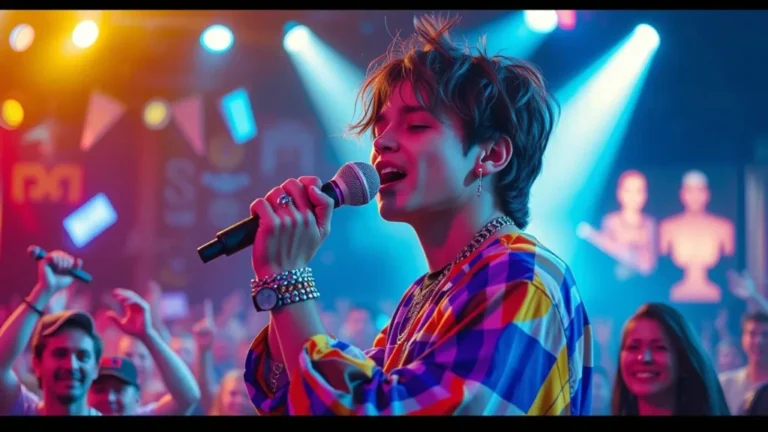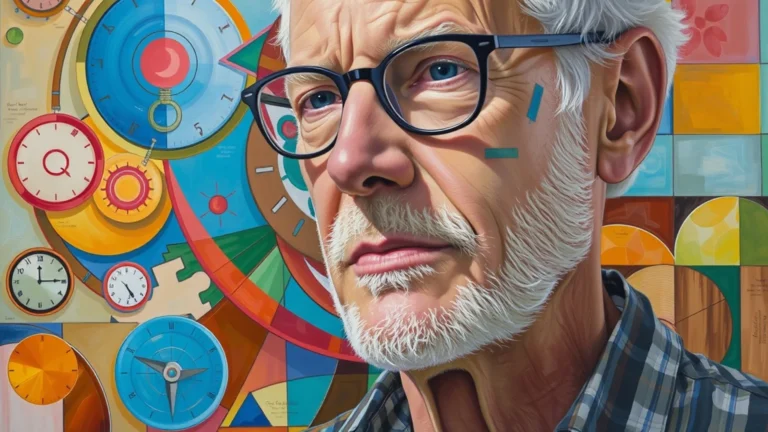The Rise of Internet Celebrities, Redefining Fame in the Digital Age
Explore how internet celebrities redefine modern fame—rising from social media to global influence, transforming culture, business, and entertainment.

The nature of fame has been completely overhauled by the internet. Historically, celebrity was a privilege held by figures like movie stars, athletes, and musicians who dominated traditional media. Today, however, that gatekeeping role is gone. Anyone with a smartphone, an internet connection, and a creative spark has the potential to reach millions worldwide. This new wave of stars—known as internet celebrities or digital influencers—has become a disruptive force, fundamentally revolutionizing the entertainment industry and reshaping the foundations of global culture.
Are Internet Celebrities?
Internet celebrities are individuals who have gained popularity primarily through online platforms such as YouTube, Instagram, TikTok, Twitch, and X (formerly Twitter). Unlike traditional celebrities who rely on film studios, record labels, or media networks, these individuals build their fame independently by producing content that resonates with audiences. Their influence extends beyond entertainment—many drive trends in fashion, beauty, technology, and lifestyle.
The Evolution of Online Fame
The concept of online fame began in the early 2000s with platforms like MySpace and YouTube, which allowed ordinary people to share videos, photos, and blogs with a global audience. Early internet stars such as PewDiePie, Jenna Marbles, and Shane Dawson pioneered the idea that anyone could become famous from their bedroom.
The world of professional content creation is structured by influencer tiers, primarily defined by follower count and the resulting audience dynamics and marketing utility. At the foundation are Nano-influencers (typically 1K-10K followers), who possess the highest authenticity and engagement because their audience feels like a tight-knit community; they are ideal for niche and local campaigns. The next level, Micro-influencers (10K-100K followers), strike a valuable balance by maintaining high engagement and trust within specialized niches while offering a wider, more professional reach. Finally, Macro-influencers (100K-1M followers) and Mega/Celebrity influencers (1M+ followers) offer massive reach and brand awareness, making them powerful for large-scale campaigns, though their engagement rates are generally lower as their relationship with the audience is less personal..
How Internet Celebrities Gain Popularity

The path to online fame often begins with authenticity and creativity. Most internet celebrities start small, sharing their hobbies or opinions. What sets them apart is their ability to connect with followers on a personal level. They don’t just broadcast content; they build communities.
Key factors that help internet celebrities rise include:
- Consistency—Regular posting keeps audiences engaged.
- Authenticity—Audiences crave relatable, genuine content over polished perfection.
- Niche Focus—Specializing in topics like fitness, gaming, makeup, or comedy attracts a targeted audience.
- Viral Moments—One trending post or video can catapult someone from obscurity to stardom overnight.
- Collaboration—Teaming up with other creators or brands expands reach and credibility.
The Power of Influence
What makes internet celebrities unique is their influence. Followers often trust their opinions more than those of traditional advertisers or public figures. When a popular YouTuber recommends a product or a TikTok creator showcases a new trend, it can have an immediate impact on sales and public perception.
This power has given rise to the influencer marketing industry, which is now worth billions globally. Brands collaborate with influencers for sponsored posts, reviews, and brand ambassadorships. Internet celebrities such as Charli D’Amelio, Emma Chamberlain, and MrBeast (Jimmy Donaldson) have turned their online fame into thriving businesses and media empires.
Types of Internet Celebrities

While all internet celebrities share the same digital origin, they differ in their areas of influence. The major types include:
- Content Creators—YouTubers, streamers, and podcasters who produce entertainment or educational material.
- Social Media Influencers—Instagram and TikTok personalities known for lifestyle, beauty, fashion, or comedy content.
- Gamers and Streamers—Twitch and YouTube gaming stars who attract millions by playing and commenting on video games.
- Micro-influencers—individuals with smaller but highly loyal audiences. They often specialize in specific niches and are valued for authenticity.
- Viral Sensations—People who become famous suddenly due to a single video, meme, or trend.
Economic Impact
The rise of internet celebrities has created a new digital economy. Many of them earn substantial income through:
- Brand sponsorships and partnerships
- Advertising revenue (e.g., YouTube AdSense or TikTok Creator Fund)
- Merchandise sales
- Crowdfunding and fan support on platforms like Patreon or OnlyFans
- Appearances and collaborations with mainstream media
For instance, MrBeast has built an empire not only through YouTube but also through ventures like Feastables and Beast Burger. Similarly, influencers like Kim Kardashian and Huda Kattan used their online fame to launch global beauty brands. The financial opportunities available through the internet have blurred the line between online fame and traditional stardom.
The Dark Side of Digital Fame
Despite its glamour, online fame comes with challenges. Internet celebrities face constant scrutiny, criticism, and pressure to maintain their popularity. Many experience burnout, privacy invasion, and mental health struggles due to the demands of content creation and public attention.
Moreover, the algorithm-driven nature of social media platforms means fame can be unpredictable. A single controversy or algorithm change can drastically affect visibility and income. The culture of “canceling” also poses risks—where one mistake can lead to severe backlash.
Another growing issue is authenticity fatigue. As influencer marketing becomes more commercialized, audiences are increasingly skeptical of paid promotions. Internet celebrities now have to balance honesty with business interests, which can be a delicate act.
The Role of Internet Celebrities in Society

Beyond entertainment and marketing, internet celebrities play a significant cultural role. They often act as voices for social issues, mental health awareness, and philanthropy. Many use their platforms to promote positive change, such as environmental conservation, gender equality, or education.
For example, MrBeast’s large-scale charity projects demonstrate how online influence can be used for humanitarian purposes. Similarly, creators like Lilly Singh and Liza Koshy have broken cultural barriers, representing diversity and inclusivity in digital media.
The Future of Internet Celebrity Culture
As technology continues to evolve, so will the nature of fame. The next wave of internet celebrities may come from virtual reality (VR) environments, AI-driven avatars, or even metaverse platforms. Artificial intelligence is already being used to create digital influencers like Lil Miquela, a computer-generated model with millions of followers.
However, one constant will remain—the human desire for connection and storytelling. Whether it’s through a viral TikTok dance, a heartfelt vlog, or a powerful podcast, internet celebrities will continue to shape how we communicate and express ourselves online.
Conclusion
Traditional media, once the sole gatekeeper of fame, has dramatically shifted its strategy from competing with internet celebrities to integrating them across its platforms to capture vital young audiences. Instead of exclusively developing talent through costly internal pipelines, Hollywood studios, television networks, and major record labels now frequently acquire or partner with established digital stars—like casting TikTok comedians in sitcoms, using gaming streamers to promote major film releases, or signing musical artists who built their careers on YouTube or SoundCloud. This approach is a pragmatic recognition that digital stars bring not only pre-built, highly engaged global audiences but also expertise in creating viral, authentic content, which traditional media leverages to revitalize their own aging formats and stay relevant in the fragmented attention economy.






